Hi hello!
I’m bringing back the Watch + Play List but keeping it seasonal because 1. I don’t want to inundate anyone with recommendations on a platform that is increasingly becoming a space where people are giving recommendations, and 2. it’s the only way I can curate this list consistently, as my focus has shifted to locking in on screenwriting and filmmaking. Since I am doing this every few months, I’m only including the most noteworthy content I’ve consumed, and I’m also adding in some books I’ve read. I think this will keep the list robust and well-rounded. I’m intentionally leaving out anything that is widely consumed or talked about1. Also, if you’re new here, a lot of these recommendations are on Kanopy, which you can access for free with a library card or through a university e-mail.
Shortly after I posted the last Watch + Play List, I was overcome with this desire to just completely abandon this Substack. It started to feel trivial amidst all of the turmoil going on in the world. I also did not have the energy or words to analyze and articulate the complexities and devastations I’ve been bearing witness to every day. So, I do what I always do in moments of uncertainty and anxiety: I find healthy modes of escapism. Literature, music, and film have been my saving grace in what felt like the LONGEST winter ever. Spring is going to be such a beautiful reprieve and refresh. My fellow, Aries, we up!
Let’s get into these films……
The bold, campy, colorful world of Pedro Almodóvar
I first got into Almodóvar a couple of years ago when I watched Women on The Verge of a Nervous Breakdown. I loved the colorful set design, melodrama, dark humor, and the quirky cast of characters. Seeing his exhibit at The Academy Museum in LA made me want to explore more of his work, but much of his earlier work is not available on US streaming platforms (why can’t I find Volver anywhere?!). By chance, I stumbled across a couple of his films and had a similarly enjoyable viewing experience to watching Women on The Verge of a Nervous Breakdown. A pioneer in queer cinema, Almodóvar has such a distinct visual, narrative, and thematic style that anchors his perverse and entertaining approach to filmmaking.
All About My Mother (1999)

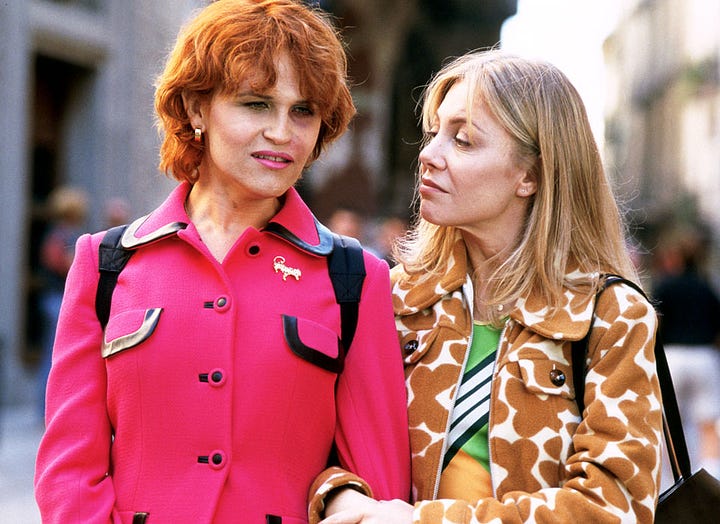
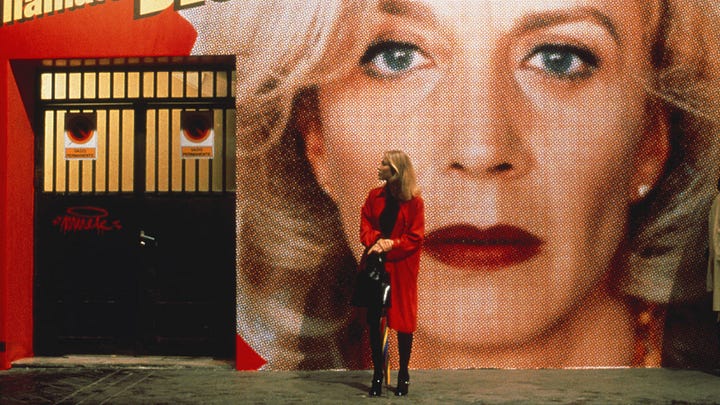
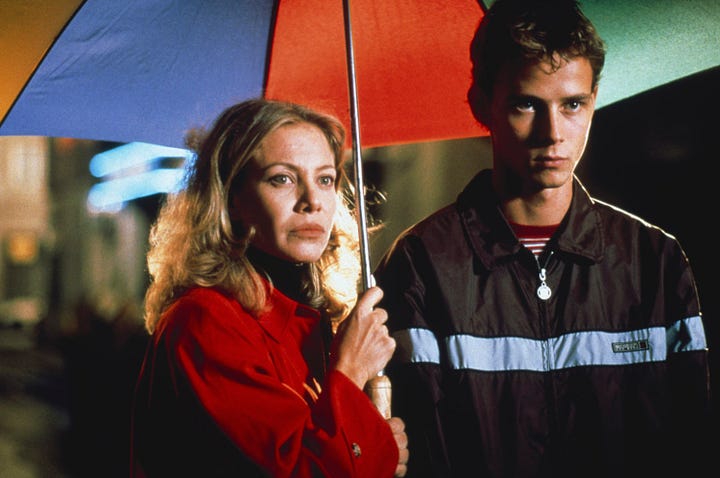
Single mother Manuela (Cecilia Roth) works as a nurse and dotes on her aspiring writer son, Esteban (Eloy Azorín). When the two see a performance of A Streetcar Named Desire for his 17th birthday, Esteban is killed in a car accident after trying to chase down the lead actress Huma Rojo (Marisa Paredes) for an autograph. Manuela donates Esteban’s organs and leaves Madrid for Barcelona to track down Lola (Toni Cantó), the trans woman who fathered Esteban. While in Barcelona, she reconnects with her friend Agrado (Antonia San Juan), a trans woman sex worker, and meets new friends Rosa (Penelope Cruz), an HIV-positive nun, and Huma Rojo, who Manuela works for as a personal assistant after Huma fires her lover/assistant, Nina (Candela Peña) who can’t kick her drug addiction. The title is a nod to the film All About Eve, and some intertextual moments mimic the film (another Almodóvar motif), but unlike Eve, this film’s core themes center communion between women, motherhood, identity, and deconstructing binaries related to gender and sexuality. The plot of this film begins in an earlier film, The Flower of My Secret (1995), but like most of his work, it’s not available on any major streaming platforms, though you don’t need to watch it to follow what’s happening in Mother.
Recommended for: fans of All About Eve, A Streetcar Named Desire, culebrones/telenovelas, and Wes Anderson production design.
Streaming on: Kanopy
Tie Me Up! Tie Me Down! (1989)
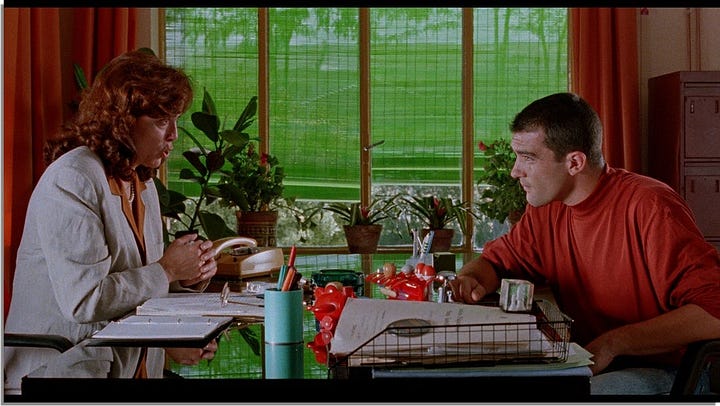
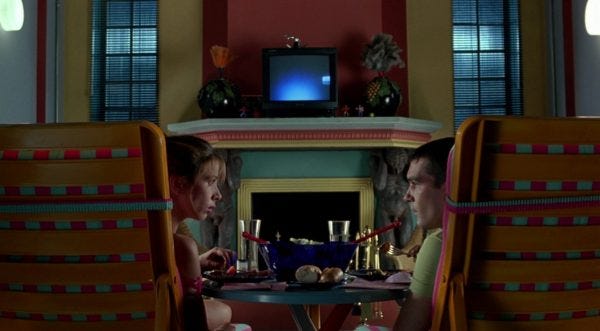
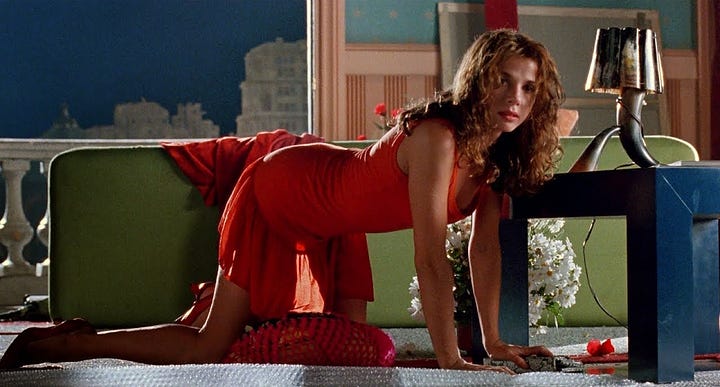
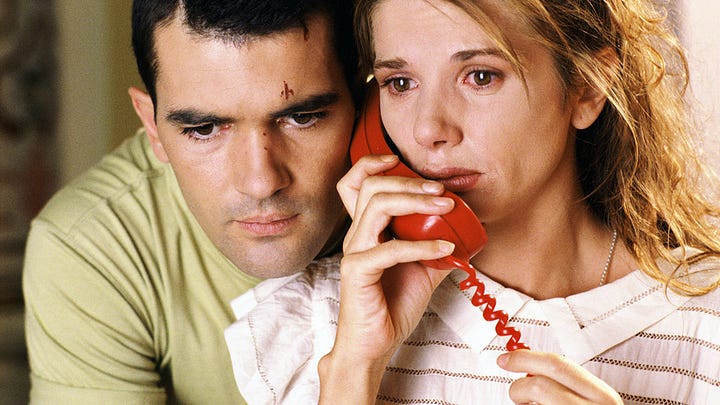
When Ricky (Antonia Banderas) is released from a mental hospital, his goal is to do what “normal” people do: get married and start a family. The problem is, his approach finding a wife is far from normal. He decides to kidnap Marina (Victoria Abril), an actress, recovering heroin addict, and former adult film star. Holding her hostage in her apartment by tying her to a bed, he vows to be a good husband, to which Marina resists because, who asked you?! This film was controversial when it was released, partially because of some of the sex scenes (which feel pretty tame for 2025 standards) but also because of the romanticization of a hot guy kidnapping and abusing a woman, but I think those takes kind of miss the point. This is a black comedy that showcases the Stockholm syndrome a lot of women experience in cishet relationships, using bondage by a devoted, charming lunatic as both a literal and symbolic theme.
Recommended for: anyone who suffered through Netflix’s You
Streaming on: Max
Be Real Black For Me
The title of this section is a nod to the Donny Hathaway & Roberta Flack song (RIP). These films are a mixture of films starring Black people that explore a wide range of topics related to the intersection of our identities, the roles we play in society, and our ideas of how to transgress them.
Mulignans (2015)
I was put onto this Shaka King short film via Okayplayer. The title Mulignan is an Italian-American slur for Black people. A quick 5-minute watch, Mulignan is a hilarious depiction of Black men playing the role of racist/anti-Black Italians on a Brooklyn stoop.
Recommended for: people who grew up watching Italian gangster movies and Spike Lee joints.
White Baby (2025)
Written and directed by Brooklyn-based filmmaker Chidozie Ekwensi, White Baby is another hilarious super short film (less than 4 minutes) that employs racial role reversal. When a liberal white woman meets a Black woman in the park with a white baby, she is shocked to learn that the Black woman is the white baby’s mom.
Recommended for: fans of Black Karen.
Black Moderates and Black Militants (1968)
Black Moderates and Black Militants is a documentary short film showcasing a conversation between Bobby Rush and two other members of the Chicago Chapter of the Black Panther Party and a Black high school principal. What I found so interesting about this film is how much the conversations between Black moderates (which, IMO are really conservatives, especially in 2025) and Black leftists have not really evolved in over 50 years. It didn’t make me feel despair, but rather, I thought about how we can expand our conversations into developing a praxis for building new ecosystems as we watch the current one implode.
Recommended for: anyone who is curious about how we can rethink our approach to Black liberation.
You can find a higher-resolution version of this film on MAX.
In The Heat of The Night (1967)
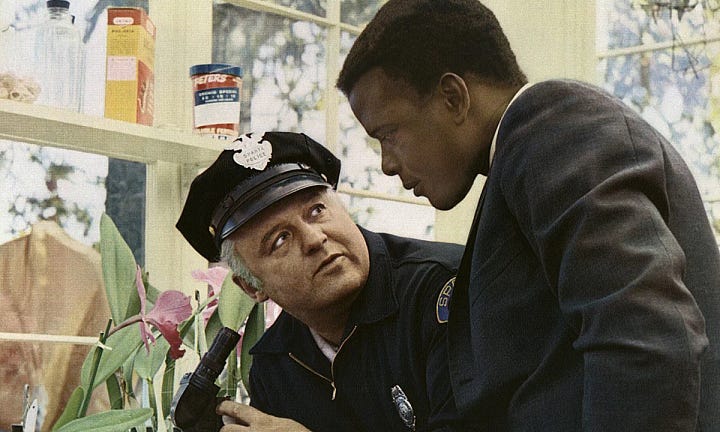
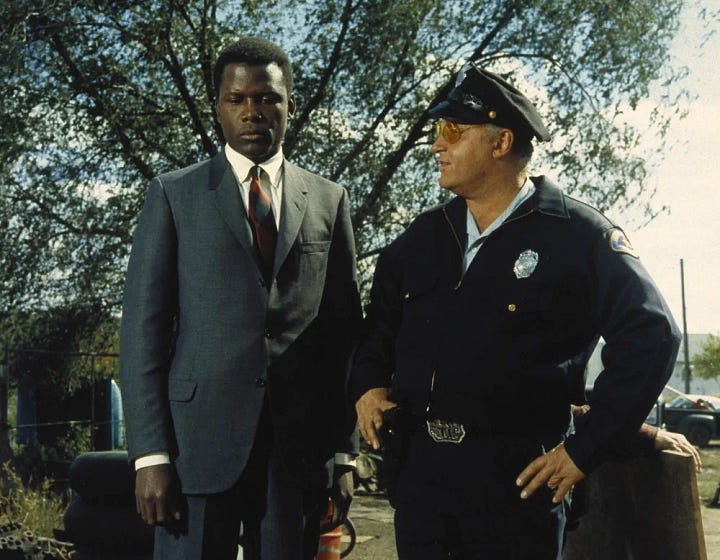
Virgil Tibbs (Sidney Poitier) is minding his Black business, waiting for a train in small town Mississippi on his way back to Philadelphia, when he is racially profiled and falsely accused of committing a murder. When he’s taken in for questioning, Police Chief Bill Gillespie (Rod Steiger) fucks around and finds out that Tibbs is also a cop. Not only is Tibbs a cop, he is a homicide expert. Tibbs is now forced to work with racist Gillespie to solve the murder he is accused of. Now, I don’t love copaganda, but what I do appreciate about this film is Poitier’s portrayal of a Black man in the deep south who refuses to conform to the subservience that white men expect of him. This slap scene gave me so much satisfaction and, in some ways, feels like a precursor to the Blaxploitation era that began after this film.
Recommended for: fans of Get Out and BlacKkKlansman
Streaming on: Tubi
Space Is the Place (1974)
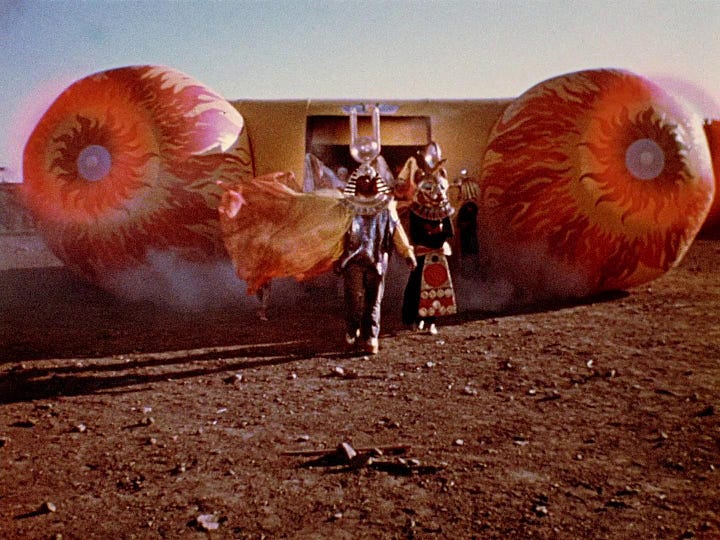
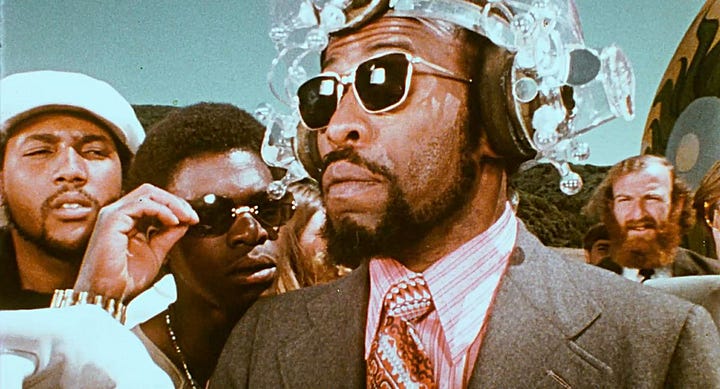
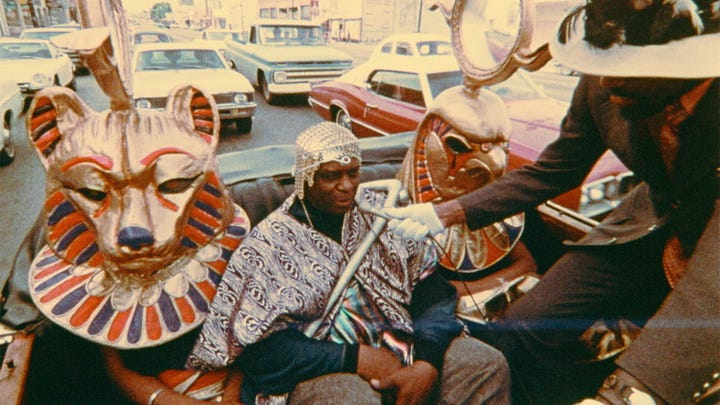
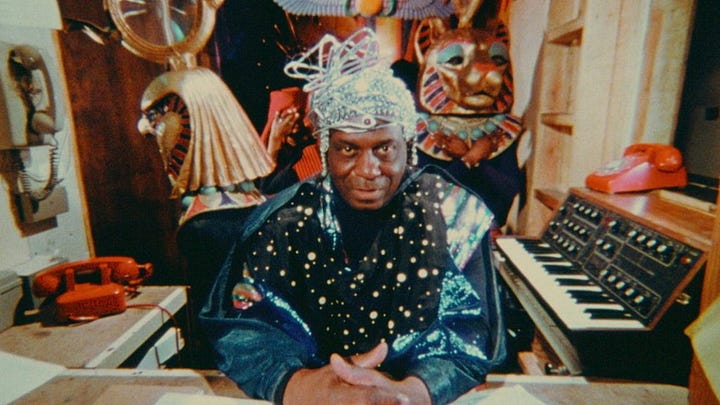
I have tried many times to watch this film, but it wasn’t until I went to the Met’s exhibit on Black artists and Egyptology that I was inspired to go back and finish it. Space Is the Place is an Afro-futurist science fiction film starring Sun Ra (as himself) as he settles a new colony in space with his Arkestra. After being reported missing since his European tour in 1969, he travels back in time to a club he used to play at and is confronted by The Overseer (Ray Johnson), who propositions him to play a game of cards to determine the fate of the Black race. While the aesthetics of Afro-futurism are vibrant and unique, the vision for it does not fully extract itself from dominantor culture. Why is it two Black men who are deciding the fate of the race? Why are we colonizing a planet for “freedom”? Not to mention, there is some sexual objectification of women that felt unnecessary. I don’t think this is a film I would’ve enjoyed watching without smoking some trees first (it’s perfect for shrooms, tbh), but it raises interesting questions about Black patriarchy.
Recommended for: 70s jazz fusion heads, Afro-futurists, people who read speculative fiction
Streaming on: YouTube and MAX
Naked Acts (1996)
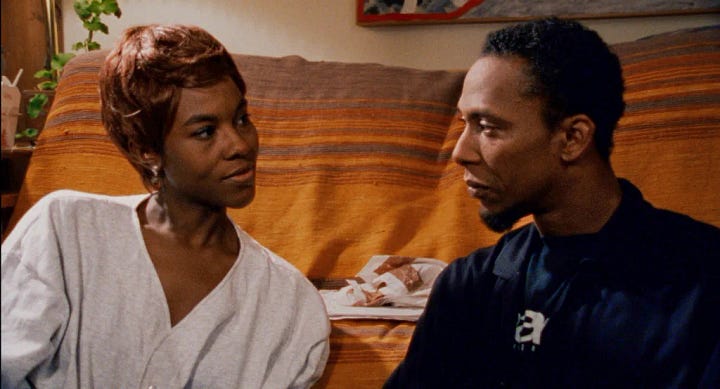
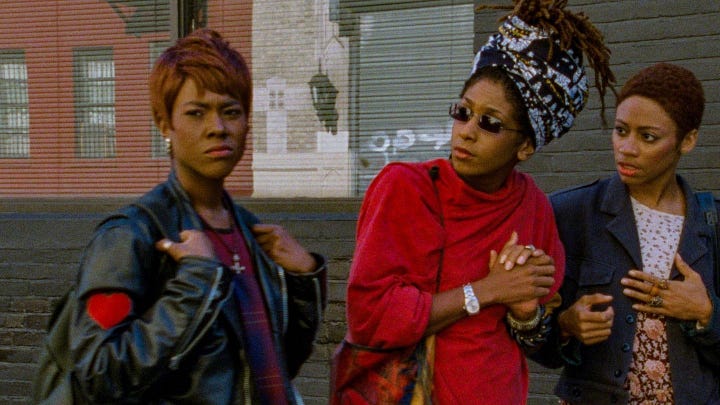
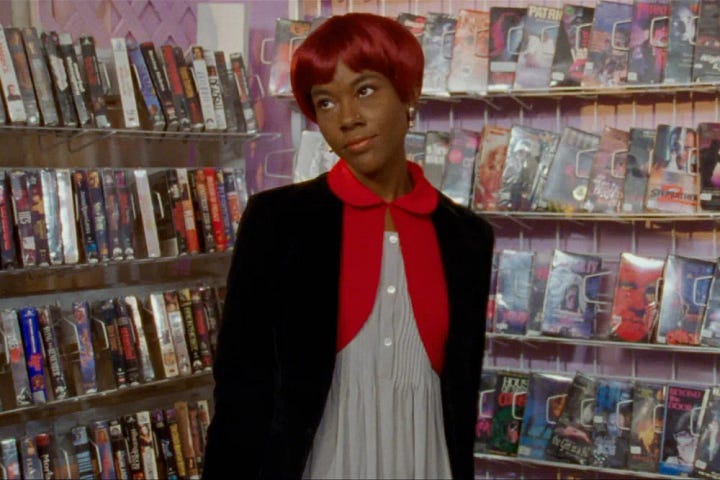
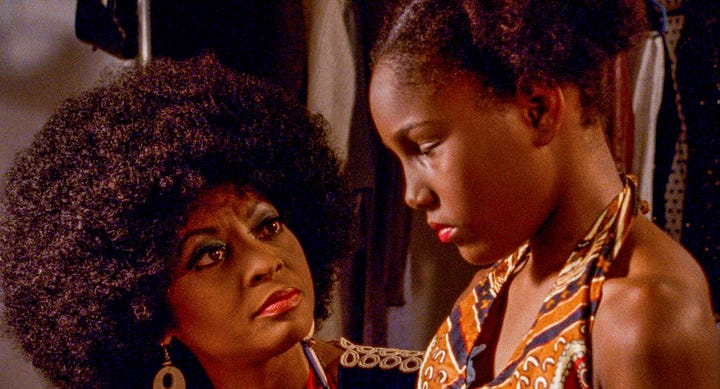
I recently read a bell hooks essay reviewing the Spike Lee film Girl 6 that talked about its realistic depiction of Black women’s experiences trying to retain bodily autonomy and wanted to rewatch it, but I couldn’t find it anywhere, so I decided to watch this film which has been on my watch list for a minute and is very similar in terms of story. Cicely (Jake-ann Jones) is determined to become a respected actress and prove to her mother, a shrewish and cynical ex-Blaxploitation actress Lydia Love (Patricia DeArcy), that she can survive the business with her dignity intact. After landing her first lead role, everything seems to be going according to plan until she learns she’s expected to take her clothes off to get the role. Cicely is then tasked with grappling with body insecurities, childhood trauma, sexual objectification, unempathetic collaborators, and, eventually, her fraught relationship with her mother. Understanding the way Black women’s bodies have been regarded for eons, it’s really power to see a narrative of one finding her way to feeling comfortable and safe in hers on her own terms.
Recommended for: Fans of Girl 6, 90s indie films, films written and directed by Black women
Streaming on: Kanopy
Luther: Never Too Much (2024)
I’m using the link to the music video for Never Too Much instead of stills from the documentary because it’s one of my favorite 80s music videos, and after learning the origin story about how this song catapulted Luther into the icon he became gave me an even deeper appreciation of it. I loved learning about his early career singing jingles, performing on Sesame Street, and working as a backup singer for people like Chaka Khan and David Bowie, how involved he was in the production and songwriting of his music, and the way he crafted his live show,s from the costuming, down to the choreography. We all know Luther was an exceptional vocalist, but he also was a showman and a sensitive soul who struggled to find his place in an industry that had (and still does) very limited views on how a Black man should look, sound, and love.
Recommended for: fans of R&B/soul and music documentaries
Streaming on: MAX
Wistful coming-of-age stories
Closing Dynasty (2023)
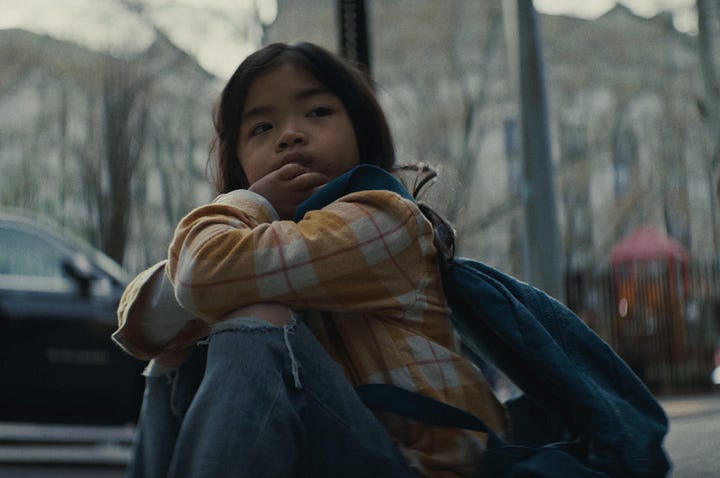
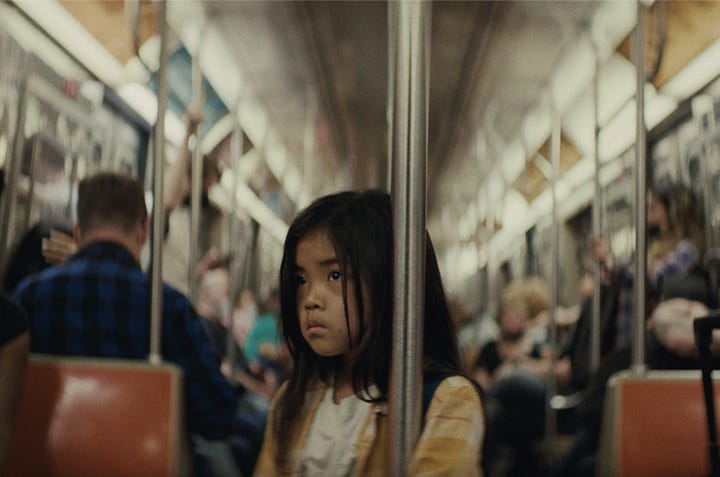
In this poignant short film, seven-year-old Queenie (Milinka Winata) skips school and roams the streets of Lower Manhattan, hustling to make money for her family, whose restaurant is struggling to stay open. I watched this (and the following film I’ll discuss, Tōtem) as reference films for something I’m writing that deals with adultified young girls. The lead child actress in this film is a natural, and I loved seeing so many familiar spots in my neighborhood. It definitely inspired me to keep pushing in my filmmaking journey.
Recommended for: fans of Crooklyn, Momma, and Nobody Knows
Streaming on: Netflix
Tōtem (2023)
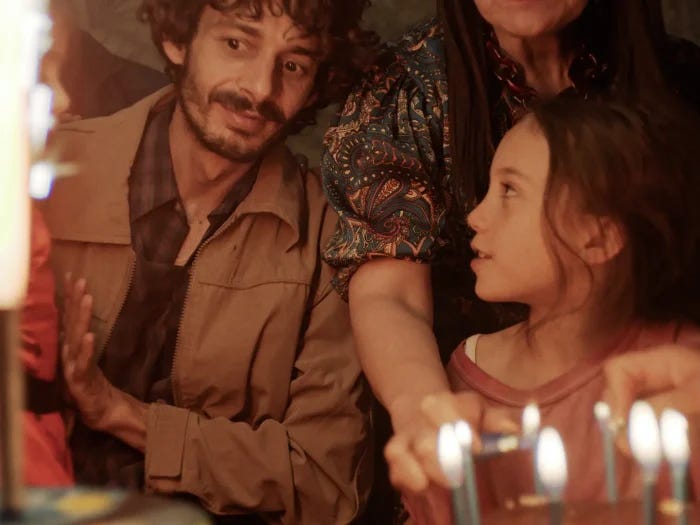
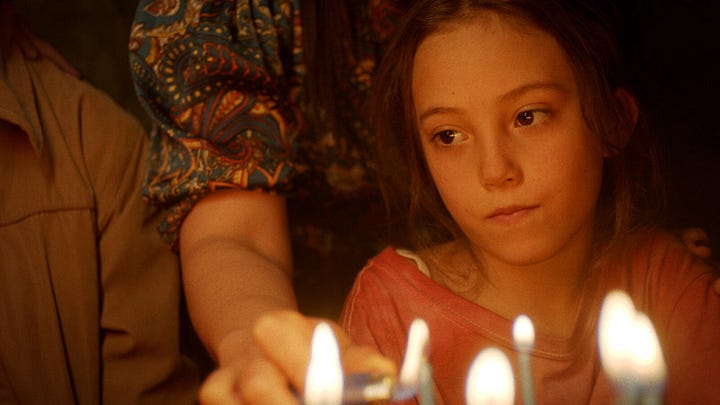
Another story with a seven-year-old protagonist, Tōtem, is a melancholic feature film that follows Sol (Naíma Sentíes) as her family prepares to throw a birthday party for her father, who is dying of cancer. I was intrigued by writer-director Lila Avilés’ approach to placing the audience inside the world of a young child navigating very adult circumstances and all of the texture and complexity she brought to this loving family who is trying to keep it together in the midst of an impending tragedy.
Recommended for: fans of From Scratch
Streaming on: Kanopy
I’m here for the theatrics
Opening Night (1977)
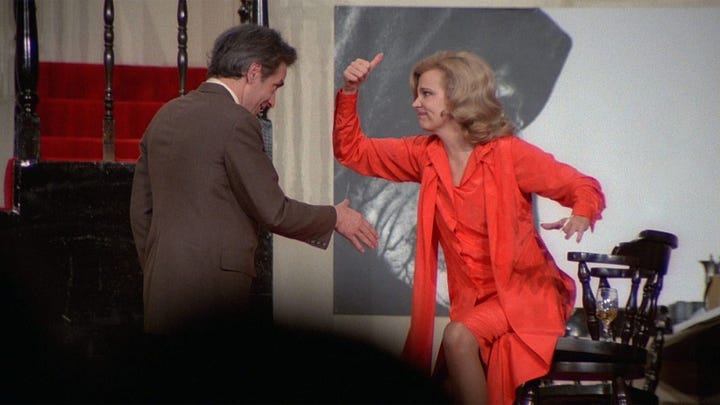
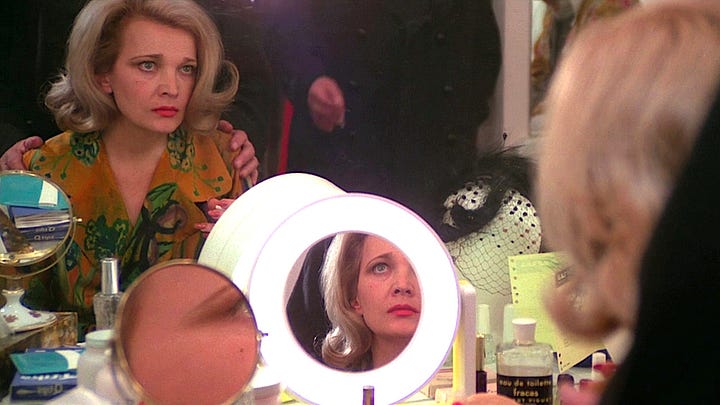
I went down a deep rabbit hole into the Criterion Closet one night and every director I admire has mentioned John Cassavetes, specifically for what his work exposes about human emotion and psychology. I had only seen Woman Under The Influence and thought Opening Night (which, like many of his films, stars his wife Gena Rowlands) would be a logical next step in my Cassavetes discovery. Opening Night tells the story of actress Myrtle Gordon (Rowlands), a well-respected middle-aged actress who is struggling to connect with a character she is playing in The Second Woman, which is preparing for its Broadway run. (Fun fact: a scene in this film where a young fan is trying to get an autograph from Myrtle was replicated in All About My Mother, which I mentioned earlier). Myrtle pushes back on her character’s portrayal and motivations with the play’s director and writer (similar to Naked Acts) and begins exhibiting erratic behavior as she indulges her alcoholism. The thing about Cassavetes’ films (or at least the two I’ve seen) is that they’re not really heavy on plot or narrative structure. So, if you’re someone who isn’t into sitting with the character in all of their inner turmoil and chaos, this may not be the film for you. But, if you love dynamic performances, Gena Rowlands delivers one worth a watch.
Recommended for: fans of Mulholland Drive and The Substance.
Streaming on: MAX
Death Trap (1982)
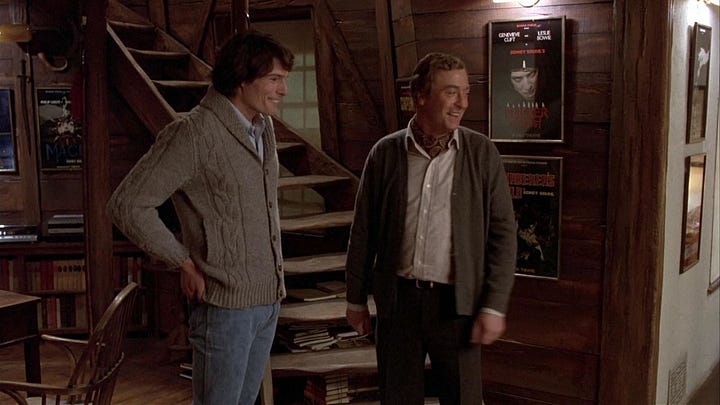
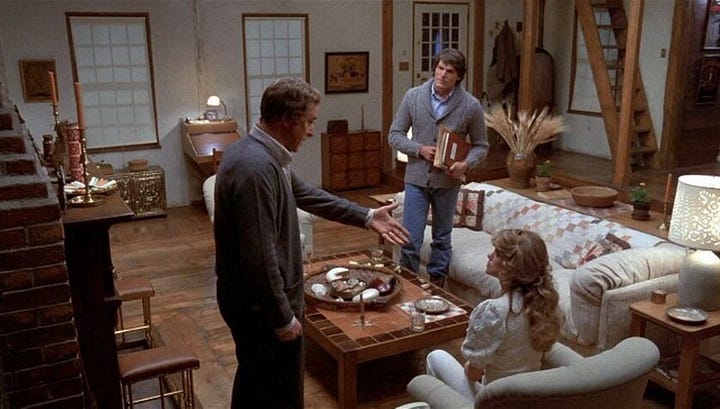
After playwright Sidney Bruhl’s (Michael Caine) latest play flops, he retreats to his Hamptons home to self-loathe and plot on how to regain the success he’s lost. He hatches a deceptive plan for a comeback when a young writer, Clifford Anderson (Christopher Reeve), shares a script that he wishes he wrote. This is one of those films that has a lot of twists and turns, so I don’t want to give too much of it away, but if you love black comedy and suspense, you’ll love this one.
Recommended for: fans of Alfred Hitchcock (specifically Dial M for Murder), Sleuth, and Broadway plays.
Streaming on: Tubi
The movie theater is so back!
I’ve fallen back in love with going to the cinema (even though it’s expensive as hell) and have seen some gems recently.
One of The Days: hilarious, iconic, an instant classic. I hope people stop talking about another installment of the Friday franchise already, this film will suffice.
Nickel Boys: I went to see this by myself thinking it would make me cry, but it didn’t. I was more emotionally moved by the book but I did appreciate RaMell Ross’ unique approach to filming POV. I’m not sure I would’ve appreciate this film as much if I didn’t read the book first.
Standing Above The Clouds: a film that did make me cry (SOB, actually) was this documentary by my friend Jalena Keane-Lee, which recently played at The Athena Film Festival and will be playing again in the city next month. Sign the petition to help support the activists in Hawaiian fighting to protect their sacred Mauna Kea.
Lost Highway (1997): The Future of Film is Female did a screening of this shortly after Lynch passed away to highlight his frequent collaborator Mary Sweeney. Like the rest of the Lynchian universe, it’s strange and perverse, and I don’t always understand what the hell is going on. The genre of this film is surrealist neo-noir horror, but I’d call it a weird erotic thriller.
TV Show Rewatches
Chewing Gum
I don’t know what Michaela Coel is working on (I hear it’s a book), but I miss her, so I rewatched Chewing Gum again. It’s absurd, hilarious, smart, and honestly, always a good idea to rewatch.
Streaming on: MAX
Vida
This is still one of my favorite comedy-dramas of all time (though it leans more toward drama, IMO). Rewatching this in a new Tr*mp era (the original run was during 45’s first term), its themes around gentrification, family legacy, belonging, identity, sisterhood, and immigration are still relevant. It’s also a very racy show, and I completely forgot about how WILD some of the sexy scenes in this show were. Purrrr.
Streaming on: Hulu, Prime, and Sling
Winter Reads
I don’t know how so many people on Substack manage to get through 10+ books a month because, as much as I love reading, I am not that girl. I don’t have the time or the headspace to prioritize reading in that way, which is something I had to reckon with last year when I didn’t meet my reading goal. I’m learning to focus on the quality of the books I’m reading and taking pleasure in my reading experience over the quantity.
For Artists/Creatives
Letters to a Young Poet by Rainier Maria Rilke and The Creative Act: A Way of Being by Rick Rubin are great reads for creatives and artists in need of a pep talk. Keeping your ego in check is challenging for any human, but for artists, it can be even more challenging to stay connected to the source, especially in this age of chasing validation. I found both of these reads to be grounding although the last half of The Creative Act started to feel a little redundant (tbh, I think this book can be read as a daily reader because the chapters are so short, I took a lot away from both books and will revisit them.
For Black Women (and people who are interested in our stories)
I got Meridian because I realize I have only read Alice Walker's poetry (don’t drag me for not having read The Color Purple yet). The story felt like a cautionary tale about what happens to Black women who sacrifice their physical and mental well-being for the greater good.
Girl, Woman, Other by Bernadine Evaristo is a novel structured with multiple vignettes of a diverse group of Black British women (and one non-binary person) whose lives intersect, and I LOVED it. (Please let me know if you read this book because I am still reeling from that Winsome chapter!). I’d love to see this adapted to the screen.
bell hooks foreverrrrrrrrr.
Teaching Community is the second book in hooks’ “Teaching” series. While it is mostly about Teaching Community within the realm of academia, I was able to extract a lot of her ideas into how they can applied in everyday life, and I also learned a lot about how universities are the intellectual art of the state (something we’re seeing play out in the worst way right now).
Real to Reel should be required reading for all filmmakers. bell’s film criticism is excellent at getting you to broaden your perspective on how Black characters are represented on the screen, especially Black women. She chewed up some of my favorite childhood films like Crooklyn and Waiting to Exhale, and I honestly feel transformed by it. She gave me a lot to consider when writing/directing and watching films. I was so inspired by this book that I developed two Bechdel-like tests for Black representation in media. (here and here)
Tunessssss.
I’ve still been listening to a lot of 70s jazz, I’m obsessed with Kelela’s live album from her Blue Note concert (that I’m still mad I had to miss because of work), and Lexa Gate’s Elite Vessel album has been on repeat. For the newer subscribers, the playlist is meant to be played with shuffle, but if you like a little chaos, do you!
And that’s a wrap! I need a nap now.
Have you watched, read, or listened to any of these recommendations? I’d love to hear your thoughts! For the OGs, let me know how you feel about this longer format.
💋 ✌🏾With love,
LaChelle
Watch My Short Film “One Of The Guys” 🎥
Follow Me On Instagram 🤳🏾
If you liked this post, check out previous Watch + Play Lists
Yes, I watch Severence and The White Lotus. No, I have not gotten into Paradise. I have two drama series at one time maximum.





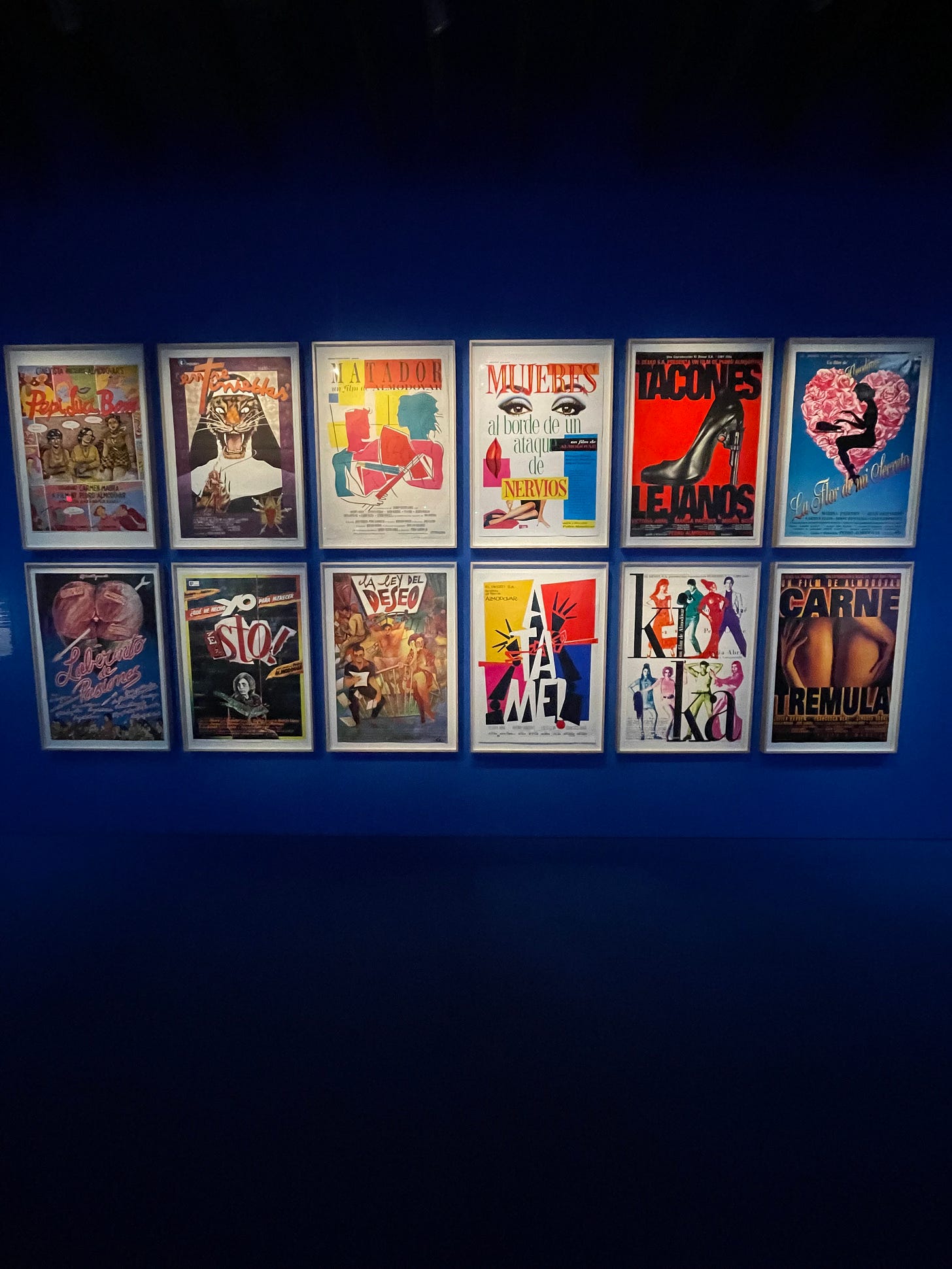

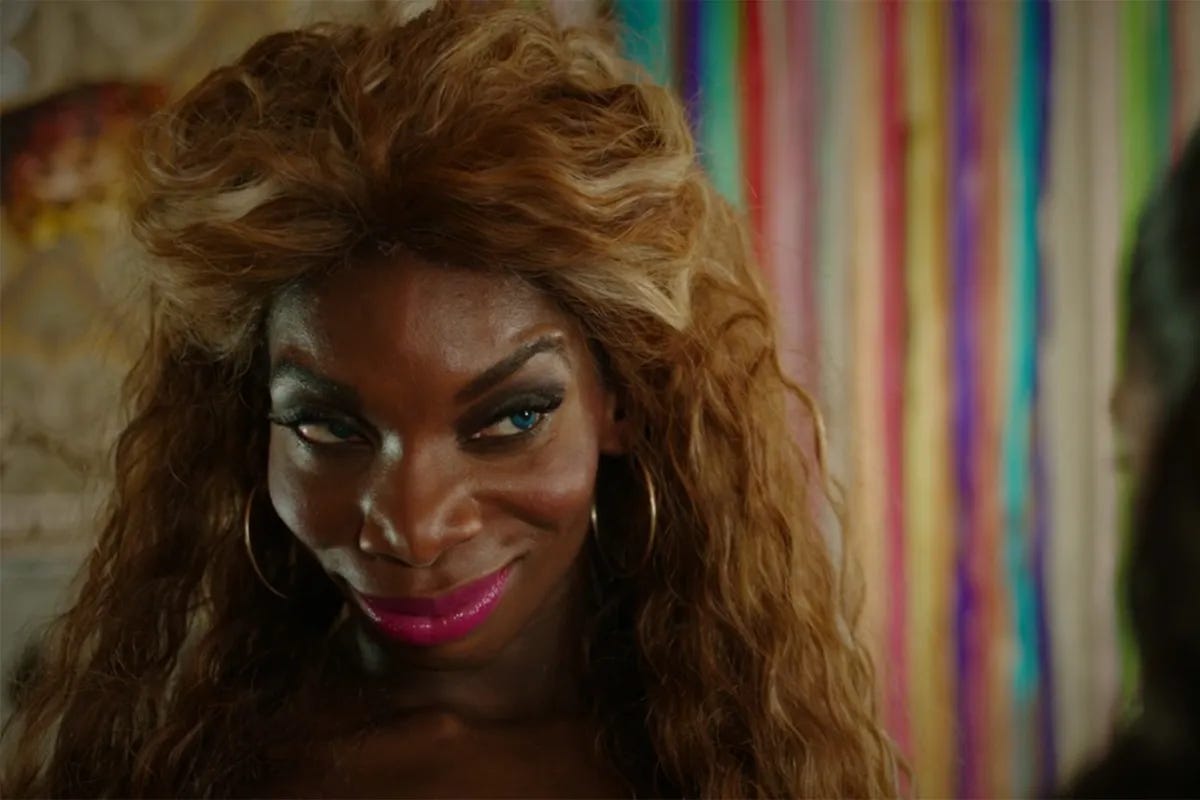
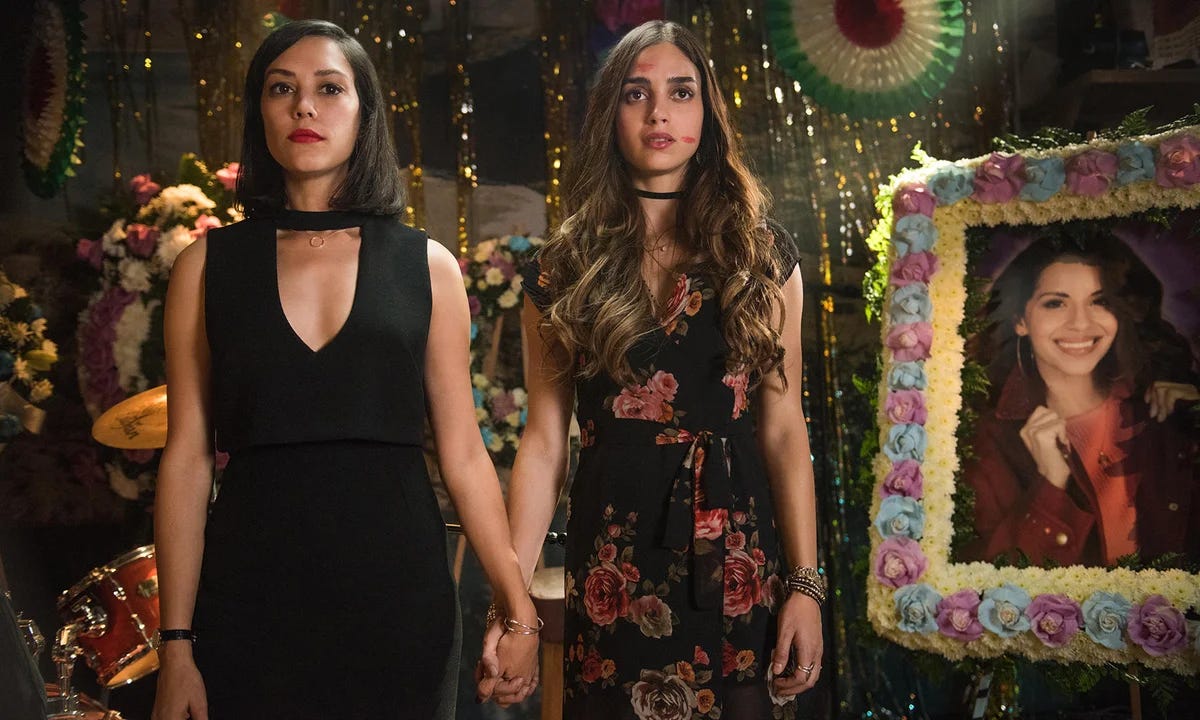

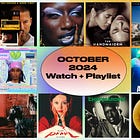
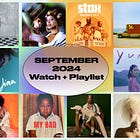

This brightened my day before the sun did. THANK YOU 🫶🏿!